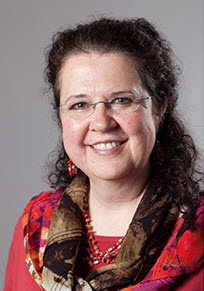While we are actively engaged in ongoing standards-related initiatives with the Facility Guidelines Institute, Joint Commission and other accrediting and regulatory agencies, our Environmental Standards Council (ESC) is a volunteer group committed to improving the regulatory standards of the Guidelines for the Design and Construction of Healthcare Facilities.
The ESC is a multidisciplinary group that includes healthcare facility executives, design professionals, regulatory agents, product manufacturers and educators. The ESC co-authored the "Environment of Care" chapter in the 2006, 2010 and 2014 Guidelines for Design & Construction of Healthcare Facilities. Unanimously accepted by the Guidelines Review Committee, this chapter outlines the environmental factors that contribute to patient, staff and family satisfaction as well as increased safety, fewer medical errors and a healthier financial bottom line. Learn more about the guidelines.
Current Members
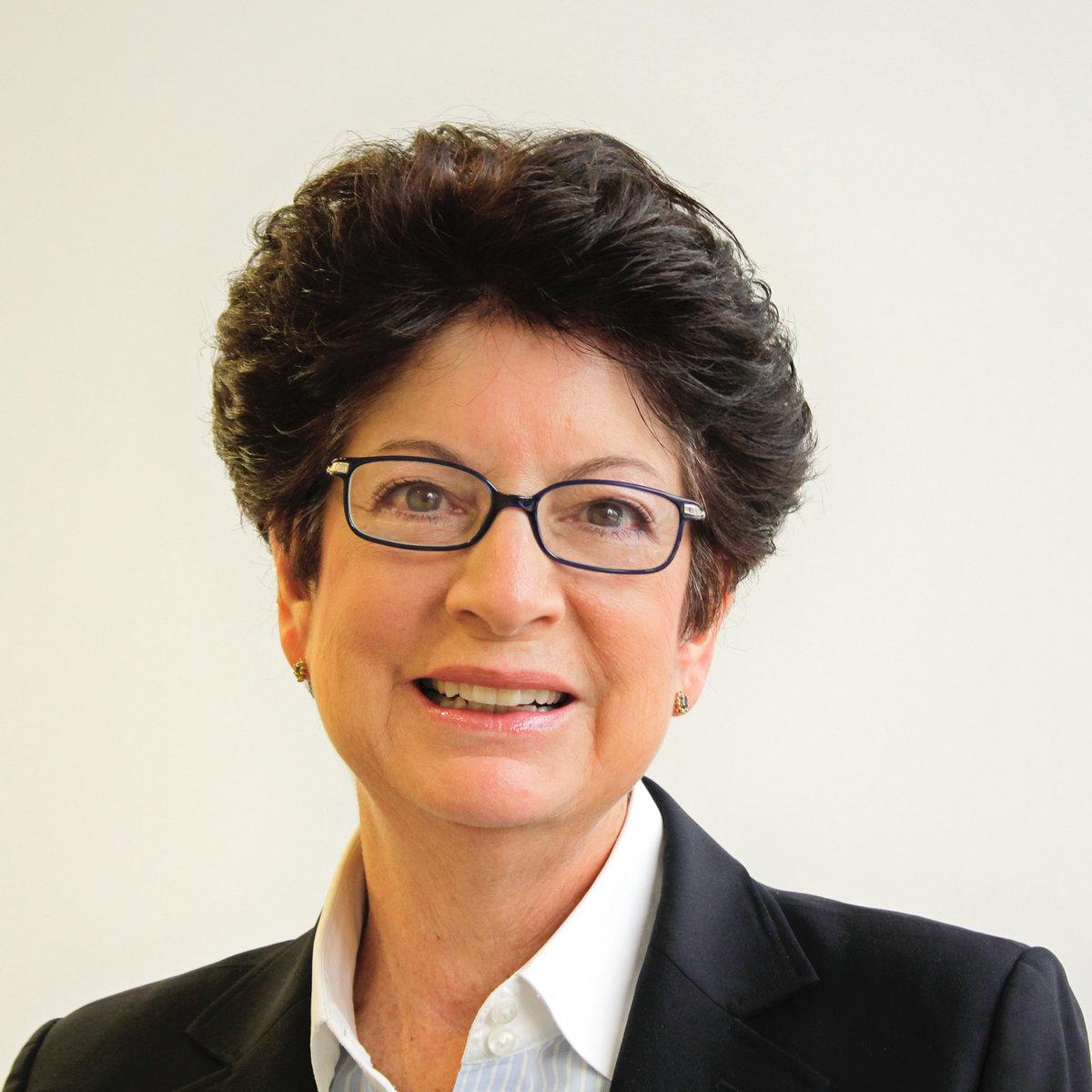
Gloria Cascarino, CEO, Medical Equipment consulting, LLC
As the former Director of Hospital Operations and Materials Management, Gloria was “The Client” during major construction and renovation projects, giving her a unique perspective as a Medical Equipment Planning Consultant. An expert in emerging technology and equipment budgeting, she plans medical equipment for all types of healthcare clients, with projects that range from small renovations to replacement hospitals. She has a special interest in energy-efficient equipment that conserves resources while improving patient outcomes and satisfaction.
Gloria is an integral member of project teams - from conceptual planning through project completion, providing valuable insights and delivering the measurable benefits of quality medical equipment planning to healthcare clients and design professionals alike. She provides guidance to clinical staff to maximize their use of existing equipment, forecast technology needs and make prudent spending decisions. At the same time, she supports the architects and consultants with timely and productive technology information, enabling the project team to have confidence that all medical equipment has been accommodated in the design and utilities planning.

Corey Gaarde, FHIMSS, CPHIMS, Principal | Project Executive, IMEG Corp.
Corey is a Principal and Project Executive for IMEG’s Healthcare Information Technology (HIT) Advisory Services Team. His role strategically aligns healthcare information technology to the collaborative design process. As a biomedical engineer with more than 25 years of healthcare experience, he fosters client and vendor relationships while developing and implementing complex healthcare IT projects. His technical expertise, clinical aptitude, and innovative approach bridges the gap between technology, architecture/engineering, and clinical operations to drive an owner’s mission and create service-oriented design. Corey focuses on technology innovation to improve patient and caregiver experience, while ensuring a connected care interoperability model. His consultative ability to collaboratively challenge the current state offers unique perspectives while encouraging innovative solutions that balance cutting edge results, realistic expectations, and favorable outcomes.
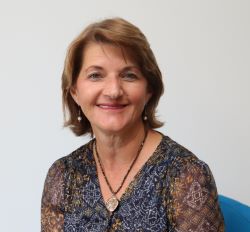
Debbie Gregory, DNP, RN, FAAN, Principal, Healthcare Innovation Consulting, Smith, Seckman, Read, Inc.
Dr. Debbie Gregory is a national leader in healthcare design, innovation, and transformation. As a nurse executive and interior designer, Dr. Gregory is passionate about “Intentional Design” that aligns People, Place, Process, and Technology. Dr. Gregory has a Doctorate of Nursing Practice in Health Innovation and Leadership from the University of Minnesota and a bachelors in nursing from Vanderbilt University. Currently, she serves as Principal for Healthcare Innovation Consulting at Seckman, Reid, Inc., a national engineering firm. She is the co-founder and past president of the Nursing Institute for Healthcare Design (NIHD) and serves on the Environmental Standards Committee at the Center for Health Design. Debbie is co-editor of Health Environments Research and Design Journal (HERD) and a Fellow in the American Academy of Nursing.

Alie Hodges, Project Controls Technician II - Space Planning, AECOM
Alie is a Design Professional from the Carolinas. She is passionate about advancing design in Healing and Learning Environments. With project experience varying from Ambulatory Care, Behavioral Health, to Higher Education, she values the Importance of Human Experience which serves a major role in the outcome of these built environments. While applying learned Project management, Space Coordination, and Technical skills to each project she finds being flexible in the industry has pushed her development as a designer. Alie strives to be a leader and influence on the design industry as trends and research continue to evolve globally.
Andrea V. Hyde, CHID, MDCID, Senior Planner/Designer, Johns Hopkins Healthcare System Facility Architecture & Planning Department
Andrea enjoys spreading the word about the positive effects of evidence-based, innovative healthcare design on improving patient outcomes where ever she can, having spoken at ASHE, AAHSA, Center for Health Design, International Medical Spa, NeoCon and NeoCon East, Hospital Build (Dubai) and other healthcare focused conferences and events. Her healthcare design work and research efforts have been published in healthcare focused journals and have won ASID and IIDA healthcare design awards. For her considerable efforts in the healthcare design industry Andrea was selected out of 150 nominees as one of the “top twenty designers who are making a difference in advancing the design of healthcare facilities” in Healthcare Design magazine.

Thomas M. Jung, M.Arch
Tom’s 30+ years of experience with the planning, architectural design, and construction of healthcare facilities was spent primarily with the New York State Department of Health’s Certificate of Need Program. Tom has been honored by Columbia University’s Mailman School of Public Health for his service to New York State’s healthcare system, recognized by Healthcare Design Magazine as one of 20 national professionals “making a difference”, and awarded a Leadership Award from the New York Society for Health Planning. Tom is also a founding member of the CHD’s Environmental Standards Council. He has been intimately involved with development of the Guidelines for Design and Construction of Health Care Facilities since 1997, eventually serving on both the Steering Committee and the FGI Board of Directors. After retiring in 2011 Tom consulted with a select group of healthcare facilities and providers until 2018.
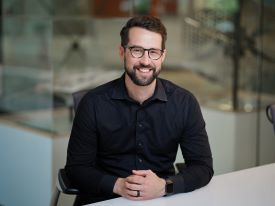
Jeff Kabat, RID, IIDA, EDAC, LSSGB, LEED AP, WELL AP, Global Practice Director, Health Interiors Partner, HKS
Jeff Kabat is Global Practice Director of Health Interiors and a Principal at HKS. Based in Dallas, Jeff is a trusted advisor for his health clients. With a listen-first approach, his designs are uniquely tailored to the patients, families and staff for whom he is designing. Jeff understands the power of design to demonstrate excellence and reinforce brand. His experience spans numerous health project types and sizes nationally.

Debra Levin, Hon FASID, EDAC, President and CEO, The Center for Health Design
Debra’s trailblazing efforts in the field of healthcare facility design research, education and advocacy have propelled The Center for Health Design (CHD) into industry consciousness and the forefront of healthcare design.
Under Debra’s leadership, CHD's flagship research initiative, the Pebble Project, has gained international recognition and grown from four participants to more than 80. Debra led the creation of the annual Healthcare Design and Environments for Aging conferences, which are produced by Emerald Expositions, in association with CHD. She has forged successful partnerships with the Robert Wood Johnson Foundation, Institute for Healthcare Improvement, California Health Care Foundation, Agency for Healthcare Research and Quality, The Donghia Foundation and other prestigious healthcare and design organizations.
Also under Debra’s watch, CHD's membership has expanded to include a rich, multidisciplinary group of architects, interior designers, healthcare executives, healthcare professionals, researchers, product manufacturers, educators, students, futurists and more.

Robert C. Masters II, AIA, ACHA, EDAC, LEED AP, Principal, CannonDesign
Rob has spent over 25 years immersed in the planning, design, and construction of healthcare and health science projects for prominent academic medical centers, community hospitals, and municipal agencies. As CannonDesign’s New York City Health Market Leader, Rob excels at delivering projects that balance leading-edge medical technologies with evidence-based, patient-focused healing environments. He advances built environment solutions that are fully integrated and supportive of emerging care delivery models, working with leading healthcare systems to improve the overall patient experience, reduce length of stay, and ultimately increase efficiency and benefit patient outcomes.
In addition to his work with the Environmental Standards Council, Rob is a member of the Health Guidelines Revision Committee (HGRC) for the FGI Guidelines, a member of the Codes & Standards Committee within the AIA Academy of Architecture for Health, and the Career Path Committee within the American College of Healthcare Architects (ACHA). Rob is board certified by the ACHA, holds EDAC certification from the Center for Health Design, is certified by the National Council of Architectural Registration Boards, and is a LEED Accredited Professional by the U.S. Green Building Council.

Chase Miller, AIA, ACHA, EDAC, Senior Healthcare Planner, Guidon
Chase Miller is a sought-after thought leader and Healthcare Planner at Guidon in Indianapolis, Indiana. As the Planning Team Leader and an Architect, he brings a wealth of experience in facility and strategic master facility plans, having worked on a diverse range of projects, from ambulatory care centers to critical access hospitals and academic medical centers. This extensive background has equipped Chase with the skills and knowledge needed to navigate the complexities of healthcare planning and design.
Chase's passion for healthcare is deeply personal, stemming from his wife's struggle with a chronic disease. This personal connection drives Chase's commitment to creating healthcare environments that are not only functional but also compassionate and patient-centered. His work reflects this dedication, as he collaborates with various stakeholders to ensure that each project meets the highest standards of care and efficiency.
Through his leadership and expertise, Chase has made significant contributions to the healthcare planning field, positively impacting the lives of patients, staff, and communities. His ability to blend professional excellence with personal passion positions him well to contribute to the broader healthcare planning and design community.
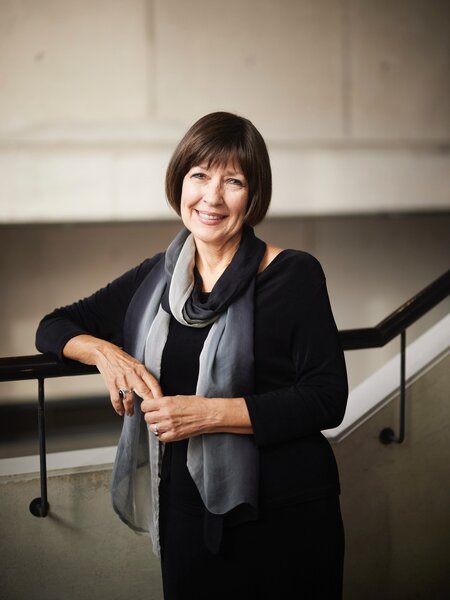
Patricia A. Moore, PhD, President, MooreDesign Associates
Pattie Moore is an internationally renowned designer and gerontologist, serving as a leading authority on consumer lifespan behaviors and requirements. For a period of four years (1979-1982), in an
exceptional and daring experiment, Moore traveled throughout the United States and Canada disguised as women more than eighty years of age. With her body altered to simulate the
normal sensory changes associated with aging, she was able to respond to people, products, and environments as an elder.
Her broad range of experience includes Communication Design, Design Research, Environmental Design, Package Design, Product Design, Service Design, Transportation Design, UX Design, Market Analysis, and Product Positioning. Clients include AT&T, Baxter Healthcare, Bell Communication, BOEING, Canadair, Citibank, Colgate Palmolive, Corning Glass, General Electric, Hill-Rom, Herman Miller Healthcare, Hong Kong Mass Transit, Honolulu Light Rail, Japan Mass Transit, Johnson & Johnson, SC Johnson Wax Company, Kimberly Clark Corporation, Kaiser Permanente, Kraft General Foods, LG Electronics, LOrad, Lowe’s, NASA, NEC, Norelco NA, Merck, Sharp and Dohme, Marriott, Maytag, Monsanto, OXO, Pfizer, Playtex, Procter & Gamble, Schering-Plough, Searle Labs, Seoul Design City Project, Sky Train Phoenix AZ, Sunbeam, 3M, Toyota Motor Corp, Valley Metro Rail, Walgreen’s, and Whirlpool.
Since 1990, Pattie has designed more than 300 Physical Medicine & Rehabilitation Environments for healthcare facilities throughout North America, Europe, China, and Japan. A frequent international lecturer and media guest, Moore is the author of numerous articles and the books DISGUISED: A True Story, Ageing, Ingenuity & Design [2015], and OUCH! Why Bad Design Hurts [in works].
She is co-author of the American National Standards Committee on Anthropometry, served as a member of the Board of Trustees of the American Physical Therapy Association, Advisory Board of CARF [Certifying Association of Rehabilitation Facilities]; The American Occupational Therapy Association Foundation.
Pattie Moore holds undergraduate degrees in Industrial and Communication Design from the Rochester Institute of Technology (Awarded "Alumna of the Year" 1984), completion of Advanced Studies in Biomechanics at NY University’s Medical School; graduate degrees in Psychology and Gerontology, Columbia University. She was selected for the American Rehabilitation Association 1996 Community Service Award, for advancing independence and quality of life with environmental design, the American Hospital Association’s 1996 NOVA Award for the "Family Road" Care Centers, holistic health environments for the promotion of appropriate childcare & parenting, the 2005 American Occupational Therapists Association’s Leadership Award; the 2006 American Society of Interior Designers Humanitarian Award. Moore is a Fellow of the Industrial Designers Society of America and in 2016 was named one of The Most Notable American Industrial Designers in the history of the field. Pattie received the 1997 Professional Recognition Award by the Arizona Design Institute for fostering Excellence in Design Education and has lectured throughout the Americas, Australia, China, Europe, Korea, Japan, New Zealand; Russia.
ID Magazine selected Moore as one of The 40 Most Socially Conscious Designers in the world. ABC World News featured Moore as one of 50 Americans Defining the New Millennium. In 2000, a consortium of news editors named her as one of The 100 Most Important Women in America.
In 2012 Pattie Moore was inducted into The Rochester Institute of Technology’s “INNOVATORS Hall of Fame” and named a Doctor of Fine Arts by Syracuse University for serving as a “guiding force for a more humane and livable world, blazing a path for inclusiveness, as a true leader in the movement of Universal Design.” Hasselt University awarded Pattie a PhD (2019), Sheffield Hallam University in 2021, and the College for Creative Studies in 2022.
Pattie Moore has been honored with the Cooper Hewitt’s prestigious National Design Award as 2019’s Design Mind and The Center for Health Design honored Moore with the 2020 CHANGEMAKER Award. In 2022, the National Association of Schools for Art and Design honored Pattie with their Citation Award and the World Design Organization selected Pattie for the World Design Medal which will be presented at the 2023 World Design Congress in Tokyo.
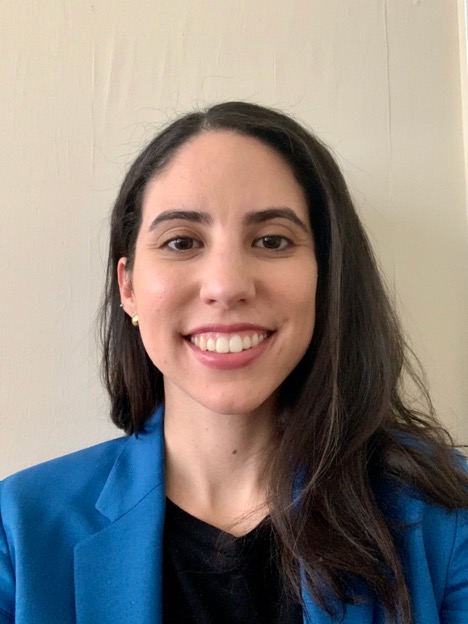
Gabriela Mujal, MHA, Director of User Experience and Behavioral Insights, Wildflower Health
Gabriela is a Director of User Experience and Behavioral Insights at Wildflower Health, a women’s health digital company for value-based care. She earned a Master of Health Administration from Saint Louis University and a Bachelor of Psychology from Santa Clara University.
Previously, she worked in the medical device industry and with a non-profit health system applying qualitative and quantitative research methods and commercializing new products and services that integrate medical services and nutrition.
She is passionate about taking a multidisciplinary, user-centered approach to understand how psychological drivers impact the digital and built environment and to find the right solutions that incorporate behavioral science into UX design to advance population health and improve health outcomes.

Erica Parker, EDAC, Innovation Designer, MD Anderson Cancer Center
Erica Parker is an Innovation Designer passionate about human-centered design and solving complex problems. She loves identifying unmet needs, conducting research, ideating, and developing concepts with beautiful interfaces (UI), heuristic experiences (UX), and prototyping interactive designs (IxD). Before joining MD Anderson, Erica worked as an Architectural Designer and Medical Planner and most recently, a Healthcare Product Designer.
Erica's experience has ranged from the design and construction of inpatient and outpatient facilities, surgical platforms, and imaging modalities to the design and development of Healthcare VR/AR/XR applications. Erica is passionate about user experience across the full design life cycle of complex products and services that enhance our digital and built environments for patients and clinical teams. She enjoys working closely with engineering, strategists, and stakeholder teams to plan and evaluate the feasibility and viability of innovative ideas. She strives to bring creative solutions that improve patient outcomes and quality of life while managing the innovation process from ideation to commercialization.
Outside of work, she combines her passion for art, architecture, technology, and design by advising underrepresented founders and early-stage startups. She is a proud JEDI Champion (justice, equity, diversity, and inclusion) who prioritizes access, inclusion, and equity in all her work.

Michael A. Pomarico, NCARB, ASHE, Architect, Pomarico Design Studio Architecture, PLLC
Mr. Pomarico possesses comprehensive experience in all aspects of healthcare systems architecture, and related support services. For over 33 years Mr. Pomarico has exclusively provided Planning, Programming and Architectural Design services on a broad range of healthcare projects. Over the course of his career, he has programmed, planned, and designed virtually every aspect of the healthcare delivery continuum. Mr. Pomarico has also created HealthRisk Technologies, Inc., a software company dedicated to the advancement of pre-construction risk assessments, monitoring and analysis of healthcare construction environments. Mr. Pomarico’s software has been designed to improve the monitoring of life safety and infection control in the environment of care. Mr. Pomarico has mastered the ability to successfully integrate his experience, knowledge of codes and healthcare delivery processes into transformational project design features and construction documents to ensure life safety and improve the patient and healthcare delivery experience.

Alberto Salvatore, AIA, NCARB, EDAC, Principal/Founder, Salvatore Architecture + Consulting
Alberto has 40 years of experience in healthcare architectural master planning, programming, department planning, and design. He has successfully lead teams nationally and internationally on projects large and small. Over this time he has come to understand and define the Physical Environment as only one of the system of components that define the Environment of Care (EOC) that is required to be addressed in the design of Spaces and Places that support the well-being of our communities and caregivers. Alberto was a key participant in defining the base knowledge used to integrate EBD into practice. He also participated in the development of the EDAC examination and sits on the EDAC Advisory Council, as well as, the Environmental Standards Council for The Center for Health Design.

Jerry Smith, FASLA, LEED AP, EDAC, SITES AP Founding Principal, SMITH GreenHealth Consulting
Jerry Smith is a landscape architect and a consultant with SMITH GreenHealth Consulting, based in Columbus, Ohio. Jerry has been involved in healthcare design since 1988 and in sustainable healthcare (green heath) since 2003.
Jerry’s impact on the healthcare design industry is evidenced in the significant appointments and contributions he has made to transformational organizations, including the Environmental Standards Council of The Center for Health Design, the Steering Committee of the Green Guide for Health Care, the Technical Core of the Sustainable Sites Initiative, and the Advisory Board of the Therapeutic Landscapes Network, to name a few.
In 2010, Jerry was appointed Faculty Fellow in Landscape Architecture, College of Architecture and Planning at Ball State University and was inducted into the Council of Fellows of the American Society of Landscape Architects.

Ana Szyld, NCIDQ, Interiors Coordinator, New York Presbyterian Hospital
Ana Szyld is an Interiors Coordinator at New York Presbyterian Hospital. She earned her Bachelor of Fine Arts from California College of the Arts, and her Master of Arts from Pratt Institute. She is NCIDQ certified and comes to this role with over 10 years of experience.
While working at NBBJ, Ana helped organizations like Macy’s, Standard Bank, and UN Millennium Hotel translate corporate values into sculptural spaces. Ana also worked with the Strategy Group at Perkins+Will, guiding clients like The Rockefeller Foundation, Federal Reserve Bank, Alexion Pharmaceuticals, and Penn Medicine, define how space can help their organization achieve their goals.
Ana is currently putting her expertise to use on projects within the 15M Sq. Ft. at Columbia Presbyterian and Weill Cornell Medical Medical Centers. She is leads the Furniture Guidelines and is part of the team that reviews design with the goal of ensuring both compliance with the NYP Interior Guidelines and design quality appropriate for a major academic health care destination.

Ellen Taylor, PhD, AIA, EDAC, Vice President for Research, The Center for Health Design
Ellen brings more than 25 years of experience in architecture, research and business to our research team. A registered architect and member of the American Institute of Architects, she has been influential in many of our research efforts ranging from guiding individual Pebble Project Partners to supporting grant-funded initiatives such as programs with the Agency for Healthcare Research and Quality (AHRQ), the Kresge Foundation, and the California Health Care Foundation (CHCF). She is a nationally and internationally recognized writer and speaker on EBD, patient safety, and development of the business case.
Experienced in both the owner's and consultant’s sides of the table, Ellen has been responsible for conducting design research for the built environment, as well as large-scale program management, capital planning, service standards planning, brand management, developing and extensive cross-departmental coordination.
Ellen has a bachelor’s degree in architecture from Cornell University’s College of Architecture, Art and Planning and Global Executive MBA degrees from Columbia University and London Business School. Her PhD in design, patient safety and human factors is from Loughborough University in the United Kingdom, under the supervision of Drs. Sue Hignett and Paula Griffiths. Ellen serves on the Facility Guidelines Institute Health Guidelines Revisions Committee (leading the 2014 Safety Risk Assessment subgroup), coordinates special projects with other organizations, serves on our Environmental Standards Council (ESC), and facilitates direction for the CHD Research Coalition volunteers.

